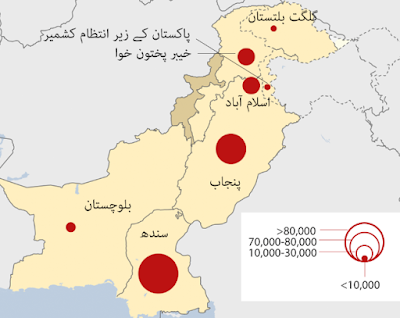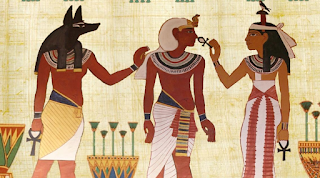Education and human development
"I love reading thoughts because it is a joy to find the same ideas that one might have, but expressed in a beautiful way and with such authority by someone I consider wiser."
(Marlene Ditrich)
Introduction
Education and development as a benchmark of life where we learn our greatest abilities, managing to develop our skills, we have education where we learn and develop as individuals, as well as we specialize in some branches such as mathematics, language and among others. But it is more than that and they provide us with values and morals, thanks to education we are whole and more capable people for a working world that we do not know and we do not learn to know within our lives.
Concept:
When it comes to education, there are many positions that are raised in this regard. Opinions range from those who restrict education to the strictly school environment to those who view education as an eminently human process that, as such, runs through the entire existence of man. Well, here education is understood in its most common sense, that is, as a process of interaction, between the teacher and the student; process in which through dialogue and mutual recognition of each other's humanity, it is possible to build knowledge (This does not mean that the deep meaning of education is lost as a fundamental human experience).
Traditional education has always considered the student as an empty container, which must be filled with content so that it can make sense and can provide some service. From this conception comes precisely the word student, original from Latin and which translates lack of light, the light that is the metaphor with which knowledge is identified. Traditional education conceives of the formand as someone incapable of intellectually self-help, and therefore dependent on a tutor who "possesses" the authority in knowledge to guide him. This traditionalist conception of education has an impact on society, greater than we can imagine; while this way of educating has been and will continue to be the breeding ground for passive people, who always criticize what they do not like but do not give themselves the task of proposing something new. A traditional education does not generate anything different from people with an excellent memory but generally not very thoughtful about the situations that happen to them in daily life. We see then that education, even when trying to restrict its field of action and impact to what is strictly academic, necessarily transcends the social sphere, and brings with it a whole series of practical considerations.
Characteristics:
It is characterized by having a variety of classes with respect to itself:
Also known as regulated training, it is the correlated comprehensive education process that covers from primary education to secondary education and higher education, and that involves a deliberate and systematic intention that is concertized in an official curriculum, applied with defined calendar and schedule .
Basic formal education:
It is that field of education that is intentional, planned and regulated. Here we are dealing with all the educational offer known as compulsory schooling, from the first years of infant education to the end of secondary education.
Advantage:
- A study calendar is kept.
- Themes are planned.
- Assessments are scheduled.
- There are dates to meet.
Disadvantages:
- There is no lost time recovery.
- There is no feedback on all topics that could not be seen previously.
- There is no extension for evaluations.
- It requires a lot of discipline to be able to carry out the activities on the scheduled dates.
- It takes a long time to make the plans.
It is necessary to have a supervision of the contents that have been taught.
Non-formal education:
Non-formal education is a type of education that will include all the processes and practices that involve a heterogeneous social group, but whose institutional structure does not certify for school cycles, that is, that it has an educational intent and a planning of the teaching process -learning, only that it will take place outside the school environment.
Objectives of non-formal education:
- Create educational programs that promote attitudes, values, competences and forms of social organization, capable of operating in change and meeting existing needs
- Create training programs that expand employment opportunities, improve family income and change living conditions.
- Transmission of basic knowledge and skills for communication and integration of society.
- The programs are aimed at people different in age, gender, social status, race, etc.
Informal education:
It is a generic term that encompasses, designates, or points to education received outside of traditional educational institutions. This concept refers to the various forms of alternative education, such as:
Deschooling and home education (learning naturally and spontaneously, through personal, regulated experiments, family activities and education, tutoring activities, sports activities, hobbies, travel, reading, social interaction, elective courses, courses eventually taught in formal institutions but which are not part of any study curriculum nor generate any specific diploma or attestation
Objective of education:
Education aims to allow all people to develop all their abilities and talents without distinction, that is, for all people to evolve regardless of their evolutionary, personal, social and cultural characteristics.
One of the primary objectives of education is
- To train independent people capable of reasoning for themselves without the help of anyone, capable of solving problems of everyday life facing the difficulties and adversities that life and society pose to us.
- Encourage the process of structuring thought, creative imagination, forms of personal expression and verbal and graphic communication.
- Favor the maturation process of children, the playful and aesthetic manifestation, the sports and artistic initiation, the socio-affective growth, and the ethical values.
- Stimulate habits of social integration, group coexistence, solidarity and cooperation and conservation of the environment.
- Develop individual creativity.
- Strengthen the link between the educational institution and the family.
- Address the physical, psychological and social inequalities originating in biological, nutritional, family and environmental differences through special programs and actions coordinated with other community institutions.






Comments
Post a Comment